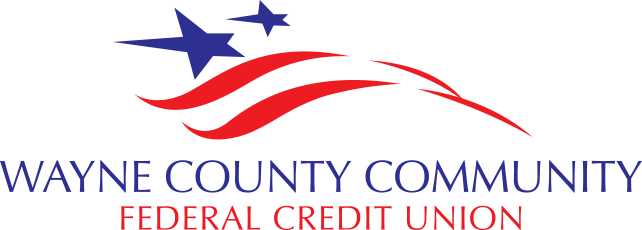Mission, Vision, and Core Values
-
Mission Statement
Wayne County Community Federal Credit Union exists to serve people through quality financial services, education, and better options to advance the financial well-being of our members and to strengthen our community.
-
Vision Statement
Banking for people. Not Banking For Profit.
What is a credit union? A credit union isn’t just a building, and it certainly is better than just a bank. We are a group of people who have come together as a financial cooperative to invest in something bigger than ourselves. We are a group of people who believe in the power of doing the right thing, and making things better. We believe in the power of the people in our community. Our credit union is a federally-chartered and federally-insured financial institution made up of Wayne County people, serving the needs of Wayne County. We are your neighbors and friends, your coworkers and your family. The Wayne County Community Federal Credit Union exists to strengthen the community we serve by educating the community on sound financial principles and by making saving and borrowing at fair rates and favorable terms accessible to the people of Wayne County. In other words; we are here to make your life better. We are here to make saving money easier and borrowing money cheaper. We are here for you. -
Core Values
The Seven Cooperative Principles of Credit Unions
This credit union is a cooperative. Many successful cooperatives are based on these seven principles and exist today.
1. Voluntary Membership
Credit unions are voluntary, cooperative organizations, offering services to people willing to accept the responsibilities and benefits of membership, without gender, social, racial, political or religious discrimination. Many cooperatives, such as credit unions, operate as not-for-profit institutions with volunteer board of directors. In the case of credit unions, members are drawn from defined fields of membership.
2. Democratic Member Control
Cooperatives are democratic organizations owned and controlled by their members, one member one vote, with equal opportunity for participation in setting policies and making decisions.
3. Members' Economic Participation
Members are the owners. As such they contribute to, and democratically control, the capital of the cooperative. This benefits members in proportion to the transactions with the cooperative rather than on the capital invested. For credit unions, which typically offer better rates, fees and service than for-profit financial institutions, members recognize benefits in proportion to the extent of their financial transactions and general usage.
4. Autonomy and Independence
Cooperatives are autonomous, self-help organizations controlled by their members. If the cooperative enters into agreements with other organizations or raises capital from external sources, it is done so based on terms that ensure democratic control by the member and maintains the cooperative autonomy.
5. Education, Training and Information
Cooperatives provide education and training for members, elected representatives, managers and employees so they can contribute effectively to the development of the cooperative.
Credit unions place particular importance on educational opportunities for their volunteer directors, and financial education for their members and the public, especially the nation’s youth. Credit unions also recognize the importance of ensuring the general public and policy makers are informed about the nature, structure and benefits of cooperatives.
6. Cooperation Among Cooperatives
Cooperatives serve their members most effectively and strengthen the cooperative movement by working together through local, state, regional, national, and international structures.
7. Concern for Community
While focusing on member needs, cooperatives work for the sustainable development of communities, including people of modest means, through policies developed and accepted by the members.
These seven principles are founded in the philosophy of cooperation and its central values of equality, equity and mutual self-help. They express, around the world, the principles of human development and the brotherhood of man through people working together to achieve a better life for themselves and their community.




